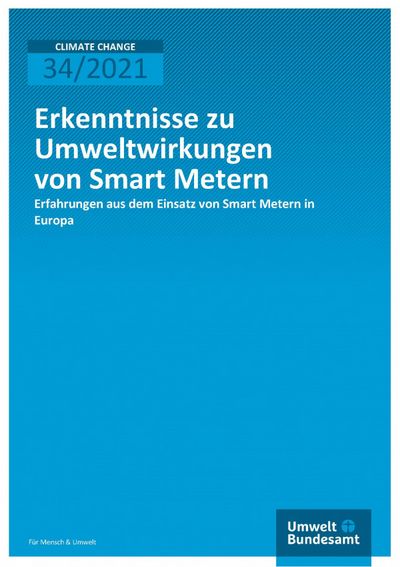Experience with smart meters in Europe
The European smart meter rollout is being implemented very heterogeneously by the member states. The publication presents the current status of the individual member states and what experiences can be drawn from this for the rollout in Germany from an ecological point of view.
The focus is on the installation of smart meters in private households and their contribution to environmental pollution or relief, as well as the associated potential for climate protection.The findings that can be drawn from the EU member states are limited by restricted comparability and a lack of scientific evaluations for ecological assessment. Therefore, within the scope of the analysis, own calculations on the ecological effects of smart meters on household level as well as on the level of the entire smart meter rollout in households were carried out.
The central statement of the analysis is that the smart meter rollout does not automatically lead to positive environmental effects. A differentiated and comprehensible feedback to the users is a central prerequisite for a net saving. An optimized use of resources and energy for operation and the lifespan of the devices are also necessary to leverage the positive effects.



